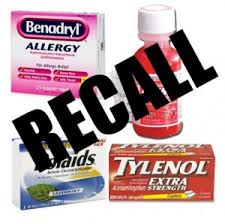 The Coalition for Vaccine Safety (CVS) calls for independent vaccine safety agency and Congressional hearings on government's lax record on safety issues.
The Coalition for Vaccine Safety (CVS) calls for independent vaccine safety agency and Congressional hearings on government's lax record on safety issues.
A three-part investigative series on Merck's cervical cancer vaccine, Gardasil®, highlights serious conflicts of interest across agencies of the Department of Health and Human Services (DHHS) in the development, approval and safety surveillance of vaccines. The series, by Mark Blaxill, Editor-at-Large for the Internet newspaper Age of Autism and a Director of SafeMinds, was posted on the newspaper's site on May 12-13 (www.ageofautism.com/mark_blaxill). It preceded the announcement on May 14 that FDA, a DHHS agency, is allowing use of rotavirus vaccines despite their contamination with viral particles from pigs. (http://www.fda.gov/NewsEvents/Newsroom/PressAnnouncements/ucm212149.htm)

 Health Glance
Health Glance Relatively low-level exposure to common pesticides -- probably from residues on foods -- doubles kids' risk of ADHD, Harvard researchers find. The findings come from a nationally representative sample of 1,139 U.S. kids aged 8 to 15 who were tested for ADHD (attention deficit hyperactivity disorder) and had urine samples tested for signs of exposure to various organophosphate pesticides such as malathion.
Relatively low-level exposure to common pesticides -- probably from residues on foods -- doubles kids' risk of ADHD, Harvard researchers find. The findings come from a nationally representative sample of 1,139 U.S. kids aged 8 to 15 who were tested for ADHD (attention deficit hyperactivity disorder) and had urine samples tested for signs of exposure to various organophosphate pesticides such as malathion. The May 6 report by the President's Cancer Panel is well-documented. It warns of scientific evidence on avoidable causes of cancer from exposure to carcinogens in air, water, consumer products, and the workplace. It also warns of hormonal risks from exposure to Bisphenol-A (BPA) and other toxic plastic contaminants, says Samuel S. Epstein, M.D., Chairman of the Cancer Prevention Coalition (CPC).
The May 6 report by the President's Cancer Panel is well-documented. It warns of scientific evidence on avoidable causes of cancer from exposure to carcinogens in air, water, consumer products, and the workplace. It also warns of hormonal risks from exposure to Bisphenol-A (BPA) and other toxic plastic contaminants, says Samuel S. Epstein, M.D., Chairman of the Cancer Prevention Coalition (CPC). Many who think they have food allergies actually do not. A new report, commissioned by the federal government, finds the field is rife with poorly done studies, misdiagnoses and tests that can give misleading results.
Many who think they have food allergies actually do not. A new report, commissioned by the federal government, finds the field is rife with poorly done studies, misdiagnoses and tests that can give misleading results. Environmental carcinogens are responsible for a far greater number of cancers than previously believed -- a fact that suggests eradicating these environmental threats should be a priority for President Obama -- according to the report of a presidential advisory panel.
Environmental carcinogens are responsible for a far greater number of cancers than previously believed -- a fact that suggests eradicating these environmental threats should be a priority for President Obama -- according to the report of a presidential advisory panel. The Food and Drug Administration said Saturday it was investigating a health-care company for possible other problems following its recall of more than 40 over-the-counter infant's and children's liquid medications.
The Food and Drug Administration said Saturday it was investigating a health-care company for possible other problems following its recall of more than 40 over-the-counter infant's and children's liquid medications. Statistics from a study conducted by the New Zealand Ministry of Health suggest that there are no advantages derived from fluoridation. These statistics actually match similar arguments set forth by the American Dental Association.
Statistics from a study conducted by the New Zealand Ministry of Health suggest that there are no advantages derived from fluoridation. These statistics actually match similar arguments set forth by the American Dental Association.






























